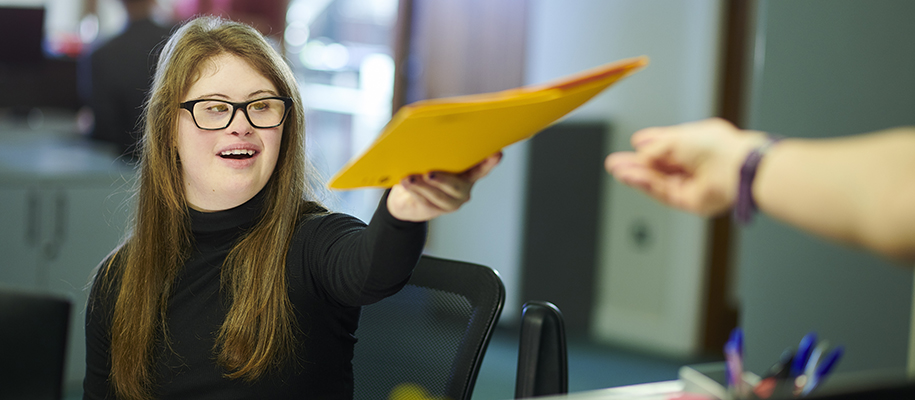The traditional path of earning a college degree to get a good job has been around for a long time. But is it enough? In a competitive world, developing transferable skills can greatly enhance your job prospects and employability. In fact, they're the skills employers are dying to see on your résumé. So when you show up with all those useful and transferable skills, you'll stand out as a more competitive and prepared applicant—the kind of applicant who gets the job.
Types of transferable skills
So what are transferable skills? Basically, they’re important foundational abilities you can rely on—no matter what you do or where you work. These include:
- Writing well (i.e., engagingly, grammatically correct, etc.)
- Communicating your ideas clearly and persuasively
- Managing projects or other complex tasks
- Getting along well with others
- Organizing your workflow
- Knowing a foreign language
- Knowing how to code
- Using social media effectively
- Leadership abilities
- Critical thinking and problem-solving
- Creativity
For example, if you've developed a marketing plan or successfully engaged in an activist project or fundraiser, you can apply those experiences to lots of different jobs, says Stef Woods, an instructor in the American Studies department at American University. “Networking and office skills are also useful skills to develop while in college,” she says. “Even in a traditional college degree program, there are opportunities to help hone these marketable skills.”
Related: Infographic: Skills to Put on a Résumé to Land the Job
How to develop transferable skills
One way to develop transferable skills is to take classes outside your college major that stretch your horizons. “Use your electives wisely,” Woods says. “Learn a foreign language, pick up a new skill like coding, or take a community-based service learning course. Any of these classes will help develop skills that you can add to your résumé.” This can be both fun and effective if you identify classes and assignments that mirror what you'll do professionally after college. In one class Woods teaches, students develop a marketing plan for a book that could be the next Hunger Games. For another course, students draft an office memorandum to a nonprofit board that's skeptical of how social media can benefit the organization. Taking courses that provide opportunities such as these can help build skills that transfer well to the workplace. Here’s a basic list of activities that can help you develop transferable skills like the ones listed above:
- Taking elective classes that stretch your horizons
- Starting a blog or other regular writing gig
- Reading, reading, reading
- Internship, co-op, and/or research experiences
- Studying abroad and navigating a new culture
- Volunteering with a cause important to you
- Pouring yourself into your hobbies
- Campus clubs or other extracurriculars
- Building your own personal website
- Getting into freelancing
- Making art
- Getting a part-time job
Related: 4 Benefits of a College Job, Plus Tips for Finding One
One of the best transferable skills: communication
Dr. Michele Ramsey, associate professor of communication arts and sciences, and women's studies at Pennsylvania State University—Berks, says anything that sharpens communication skills is a good bet. She points out that every year, a number of lists come out focusing on the skill sets employers want from college graduates as well as skills employers complain that college graduates lack. “Communication is always at the root of several of the skills on both lists,” she says. “Find as many ways and classes as you can to help develop your communication skills.”
Ramsey says these critical communication skills include public communication, interpersonal communication, working with diverse populations, working in teams, and creating and managing relationships with colleagues and clients. Interpersonal communication may be the most important of all, according to Ramsey. “The most talented engineer or marketing strategist in an organization likely will not go far if she can’t effectively manage a team of people below her, or persuasively and succinctly communicate her company’s pitch to a possible client,” she says. “Any major who wants to be better at their job, whatever that job may be, should do anything he or she can to improve their public and interpersonal communication skills while in college.”
Enhancing your transferable skills outside the classroom
Woods says that real-world experience can enhance what you learn in class. “Look into internships for credit,” Woods says. “Learn valuable office skills and build your résumé while getting credits toward graduation.” Judy Garfinkel, a learning and career coach based in Stamford, Connecticut, says that it’s also important to focus on self-management skills such as managing timelines, meeting deadlines, and responding to failure and feedback with a positive “growth” mindset. “A great way to develop and learn these skills is to find people you can emulate, watch what they do, and try it out,” she says. “Read good books, watch videos, and practice what you learn.” And it can also be productive to find mentors who will give you advice on your efforts to master key transferable skills.
Related: The Best Summertime Opportunities: Jobs, Internships, and Volunteering
Whether you’re the best at planning elaborate activities with your friends or your personal blog gets more traffic than the 405, having transferable skills will help boost your job prospects—but only if you can demonstrate that they're useful to any workplace on your résumé. By developing and strengthening your transferable skills inside and outside the classroom, you'll be on the fast track to career success.
Find more inside information on landing a job after graduation in our Internships and Careers section.






